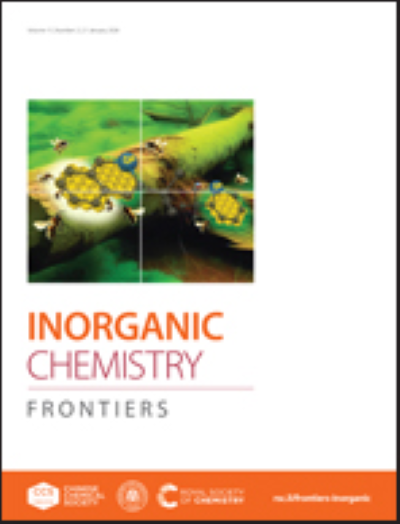膜状MOF质子导体
IF 6.4
1区 化学
Q1 CHEMISTRY, INORGANIC & NUCLEAR
引用次数: 0
摘要
随着全球能源需求的不断增长,人们对替代能源技术进行了大量的研究,其中质子交换膜燃料电池(pemfc)以其高效、环保的特点脱颖而出。然而,像Nafion®这样的传统质子导体面临着严重的限制,包括依赖水的导电性、高生产成本以及在高温/低湿度条件下的性能差。金属有机骨架(mof)具有可调结构、高孔隙率和多种功能化特性,有望克服这些挑战。本文系统地综述了膜状MOF质子导体的研究进展,重点介绍了三种主流的制备策略:MOF-聚合物共混膜、MOF玻璃膜和衬底沉积MOF薄膜。讨论了每种类型的质子传导机理、结构设计原则和性能优化策略。此外,本文还强调了推进基于mof的膜用于PEMFC实际应用的当前挑战和未来前景。本文章由计算机程序翻译,如有差异,请以英文原文为准。
Membrane-Shaped MOF Proton Conductors
The escalating global energy demand has spurred intensive research into alternative energy technologies, among which proton-exchange membrane fuel cells (PEMFCs) stand out for their high efficiency and environmental benignity. However, conventional proton conductors like Nafion® face critical limitations, including water-dependent conductivity, high production costs, and poor performance under high-temperature/low-humidity conditions. Metal-organic frameworks (MOFs), with their tunable structures, high porosity, and diverse functionalization, have emerged as promising candidates to overcome these challenges. This review systematically summarizes the recent progress in membrane-shaped MOF proton conductors, focusing on three mainstream fabrication strategies: MOF-polymer blend membranes, MOF glass membranes, and substrate-deposited MOF films. The proton conduction mechanisms, structural design principles, and performance optimization strategies for each type are discussed. Additionally, the current challenges and future perspectives in advancing MOF-based membranes for practical PEMFC applications are highlighted.
求助全文
通过发布文献求助,成功后即可免费获取论文全文。
去求助
来源期刊

Inorganic Chemistry Frontiers
CHEMISTRY, INORGANIC & NUCLEAR-
CiteScore
10.40
自引率
7.10%
发文量
587
审稿时长
1.2 months
期刊介绍:
The international, high quality journal for interdisciplinary research between inorganic chemistry and related subjects
 求助内容:
求助内容: 应助结果提醒方式:
应助结果提醒方式:


